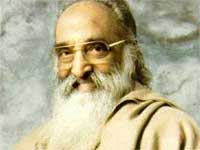Just In
- 25 min ago

- 2 hrs ago

- 10 hrs ago

- 10 hrs ago

Don't Miss
- News
 Odisha Boat Tragedy: Four Dead, Search Continues For Missing Passengers
Odisha Boat Tragedy: Four Dead, Search Continues For Missing Passengers - Movies
 Paarijatha Parvam Full Movie Leaked Online In HD For Free Download Hours After Its Theatrical Release
Paarijatha Parvam Full Movie Leaked Online In HD For Free Download Hours After Its Theatrical Release - Technology
 itel S24 With 108MP AI Dual Camera India Launch Confirmed; Amazon Microsite Goes Live
itel S24 With 108MP AI Dual Camera India Launch Confirmed; Amazon Microsite Goes Live - Finance
 Daily Relative Strength Index RSI In A Bullish Mode of This Pharma Stock; Buy For TP Rs 635-685
Daily Relative Strength Index RSI In A Bullish Mode of This Pharma Stock; Buy For TP Rs 635-685 - Sports
 RCB Green Jersey Match: Record And Stats Ahead of KKR Meeting in IPL 2024
RCB Green Jersey Match: Record And Stats Ahead of KKR Meeting in IPL 2024 - Automobiles
 Mahindra XUV 3XO SUV – Everything We Know So Far
Mahindra XUV 3XO SUV – Everything We Know So Far - Education
 Exam Pressure Does Not Exist; Studying Punctually is Crucial; Says Aditi, the PSEB 2024 Topper
Exam Pressure Does Not Exist; Studying Punctually is Crucial; Says Aditi, the PSEB 2024 Topper - Travel
 Journey From Delhi To Ooty: Top Transport Options And Attractions
Journey From Delhi To Ooty: Top Transport Options And Attractions
The Flight Of The Subtle Body II

Those who are performing Istarn are individuals of high culture with well-developed intellectual discrimination, who also have a great amount of self-control over sensuous desires. They are mainly people with a contemplative nature, whose only demand in life is to gain greater mental and intellectual perfection. They direct all their efforts toward reaching the final goal of life . Naturally, when they depart from this life, having all the time meditated upon the universal energy aspect of life, their minds identity with the Path of the Sun. And reaching the source of Prana, cross it, to go beyond.
Those who are performing Purtam actions are also highly cultured members of society. But they are, to a large extent, still entertaining desires for wealth or progeny, or glory and position in life. They are trying to fulfill the small desires of many people through Purtam. By that they expect to be blessed by these satisfied members of the society, and ultimately would obtain fulfillment of their own desires.
Thus, though they lived a noble life of charity, purity, benevolence, and so on, there was always an undercurrent of desire deep within their apparently noble hearts, Their demands were mainly on the material plane. Naturally, when they depart from here they go to the world of matter, the Moon. Thus, following the Southern route they reach the Moon, and crossing it, go to that plane of consciousness called technically as the Pitrloka, the world of the manes. There they enjoy super-sensuous objects with supersensitive apparatus.
One who has thus gained the heavens as a result of his meritorious acts, after exhausting his merit balance, will have to return to the lower planes of consciousness. And there, pain and struggle, loss and gain, and birth and death will again be his experience. Therefore, the Rishi says in the Mundaka Upanisad : Engrossed in the ways of the ignorant, these people childishly think that they have gained the end of life. But, being subject to passions and attachments, they never attain Knowledge, and therefore, they fal1 down wretched, when the fruits of their good deeds are exhausted. (Chapter I, Section U:9)
In the earlier part of the Vedas, in the Karma Kanda, there is a sincere advocacy of the performance of karmas. Later , in the Upanishadic portion we find, in stanzas such as these, a vehement condemnation of them. This would look as though it is a palpable contradiction, but it is not.
When children are in an elementary class, you have to insist upon their learning the multiplication tables by heart. But when they come to the standard of pur mathematics, it would be absurd to insist that they practise the multiplication tables every day.
Similarly,rituals have an elementary purpose, without which nothing higher is possible. Yet to continue to devote one's entire life in mere ritualism, would be a terrible waste. Therefore, Sruti (scripture) is crying down such wasteful policies in spiritual seekers.
It is desire that generates the flow of thought in the mind. And it is the quality, texture, quantity, and direction in which thoughts flow, that determine actions. Thus, karma cannot be where desires have ended. Thoughts cannot end where desires have not ceased. Where thoughts are bubbling, the mind must be gross with its dense power.
Therefore, annihilation of the mind is possible only when desires are annihilated. This amounts to saying that these wise, energetic, devoted, and sincere people, in whom ritualism has fulfilled itself: pursue this wrong path of wasteful activity only because of the germs of desires that still breed in their hearts.
-
 thoughtThe Transient Life
thoughtThe Transient Life -
 thoughtReorganize Yourself Personally
thoughtReorganize Yourself Personally -
 thoughtThe Fear Of Failure-A Fallacy
thoughtThe Fear Of Failure-A Fallacy -
 thoughtPractice Of Vedanta-Part II
thoughtPractice Of Vedanta-Part II -
 thoughtPractice Of Vedanta-Part I
thoughtPractice Of Vedanta-Part I -
 thoughtThe Essence Of Bhagavatam-Part II
thoughtThe Essence Of Bhagavatam-Part II -
 thoughtWhat Is Samadhi?-Sahaja Samadhi And Sahaja Nirvikalpa
thoughtWhat Is Samadhi?-Sahaja Samadhi And Sahaja Nirvikalpa -
 thoughtLiving in Freedom and Enquiry-Part III
thoughtLiving in Freedom and Enquiry-Part III -
 swami chinmayanandaVeda Vyasa - Part II
swami chinmayanandaVeda Vyasa - Part II -
 thoughtLiving in Freedom and Enquiry-Part II
thoughtLiving in Freedom and Enquiry-Part II -
 swami chinmayanandaVeda Vyasa - Part I
swami chinmayanandaVeda Vyasa - Part I -
 thoughtGuru Gita-Part IV
thoughtGuru Gita-Part IV


 Click it and Unblock the Notifications
Click it and Unblock the Notifications




